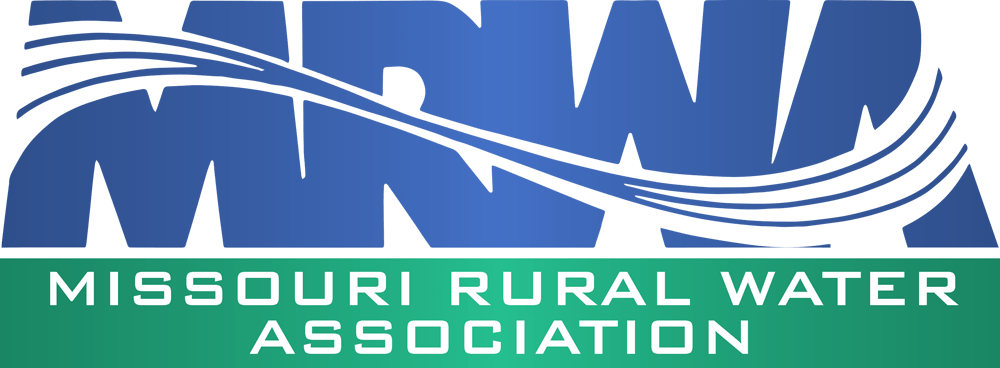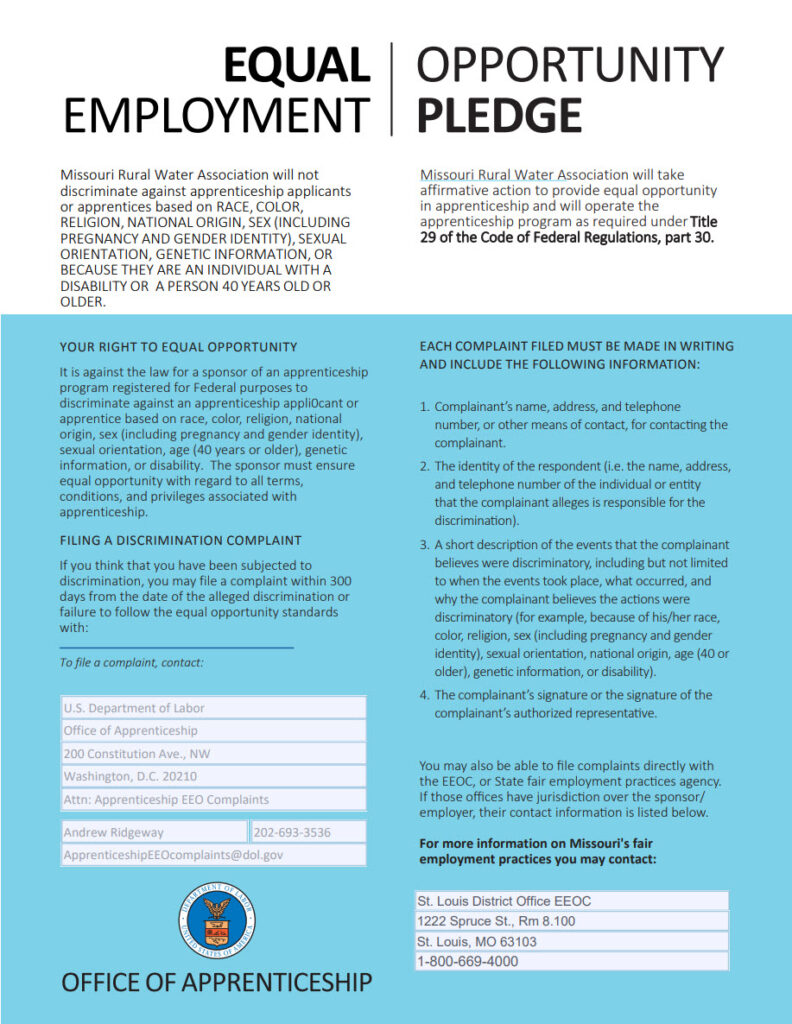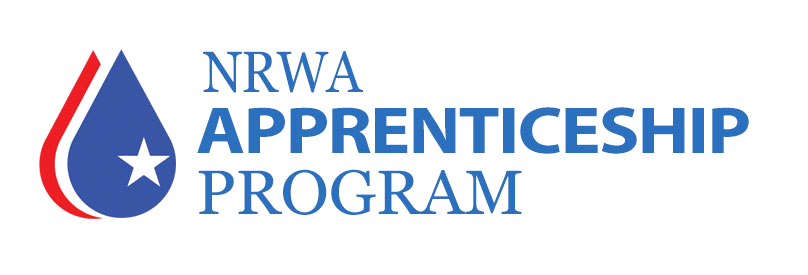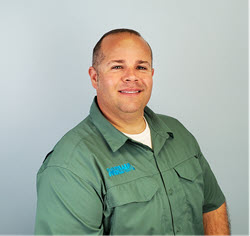
MRWA Apprenticeship Program
Minimum Qualifications
- Age – 18
- Education – GED or High School Diploma
- Physical – Must be capable of performing physical labor
- Drug Screen – Must pass a drug screen
- Background Check – Must pass a background check
- Driver’s License – Must have a valid driver’s license
Missouri's only verified instructor for

Missouri Rural Water Association will not discriminate against apprenticeship applicants based on race, color, religion, national origin, sex (including pregnancy and gender identity), sexual orientation, genetic information, or because they are an individual with a disability or a person 40 years old or older. Missouri Rural Water Association will take affirmative action to provide equal opportunity in apprenticeship and will operate the apprenticeship program as required under Title 29 of the Code of Federal Regulations, part 30.
What is Apprenticeship?
Apprenticeship is a system in which workers train on-the-job – earning wages and doing productive work – while simultaneously taking courses. When someone completes an apprenticeship, they’ll have valuable work experience and a recognized industry credential, along with state certification that allows them to continue in the field and over time, advances their career.
Missouri apprenticeships generally last two years. Apprentices, who must be at least 18 years of age, work full-time at a local water or wastewater system and must be paid at least minimum wage. As the apprentice advances through the program, his/her wages increase according to a predetermined schedule agreed upon between employer and apprentice.
One key distinction between apprenticeship and other forms of workforce training is that an apprenticeship program engages the learner as a paid employee from the start of the program. Although an apprentice’s wages may begin at a lower level than those of co-workers (never less than minimum wage), his/her wages must increase as the individual progresses through the program, based on a schedule outlined in a written agreement between employer and apprentice.
Registered Apprenticeships have Two Main Components
- On-the-Job Training (OJT): An apprentice is typically required to complete a minimum of 2,000 hours of structured on-the-job (OJT) training. Apprentices are paid wages while participating in OJT.
- Related Technical Instruction (RTI): Apprentices must also be engaged in classroom learning that supports their OJT activities. It is recommended that the apprentice complete at least 144 hours of related technical instruction each year. RTI will be conducted by Missouri Rural Water Association, the premier training organization in the state of Missouri. Typically, the employer pays the cost of the RTI, and often also pays wages for the time the apprentice spends in class.
Have Questions?
For more information, contact
Donald Jones, MRWA Apprenticeship Coordinator
(573) 359-8801
[email protected]
Advantages of Apprenticeship
Apprentice – Successfully completing an apprenticeship provides:
- a pathway to a solid career in the water or wastewater field.
- training that pays wages.
- wages that increase as new skills are mastered.
- an alternative to an expensive college degree.
- a way to move to a higher-level job in one’s current field or transition between careers while still earning an income.
Employer – Apprenticeship training brings value to the organization with:
- the cultivation of a well-trained, talented workforce that is productive from the beginning.
- the ability to diversify the workforce by bringing new talent to the organization.
- the opportunity to train workers using the exact pieces of equipment, protocols and procedures that are relevant to the employer.
- an increase in high performance among employees and a decrease in error and accident rates.
- an added sense of loyalty between employers and employees.
- increased employee retention and advancement.
- an opportunity to fill challenging vacancies.
- an opportunity to maintain institutional knowledge when soon-to-retire workers mentors to new workers.
- a financial return on investment that averages around $1.40 earned for every dollar spent on the program.









